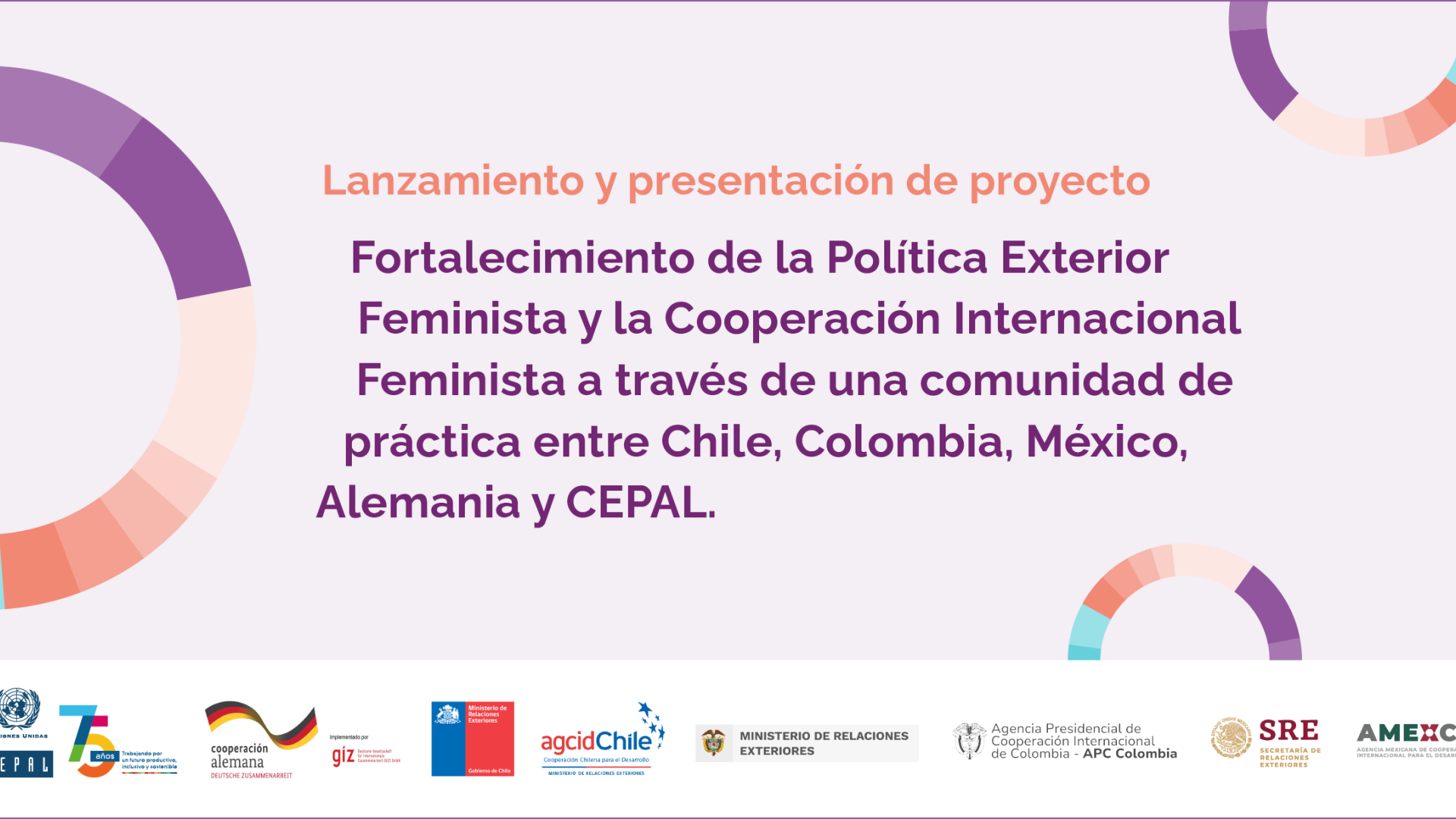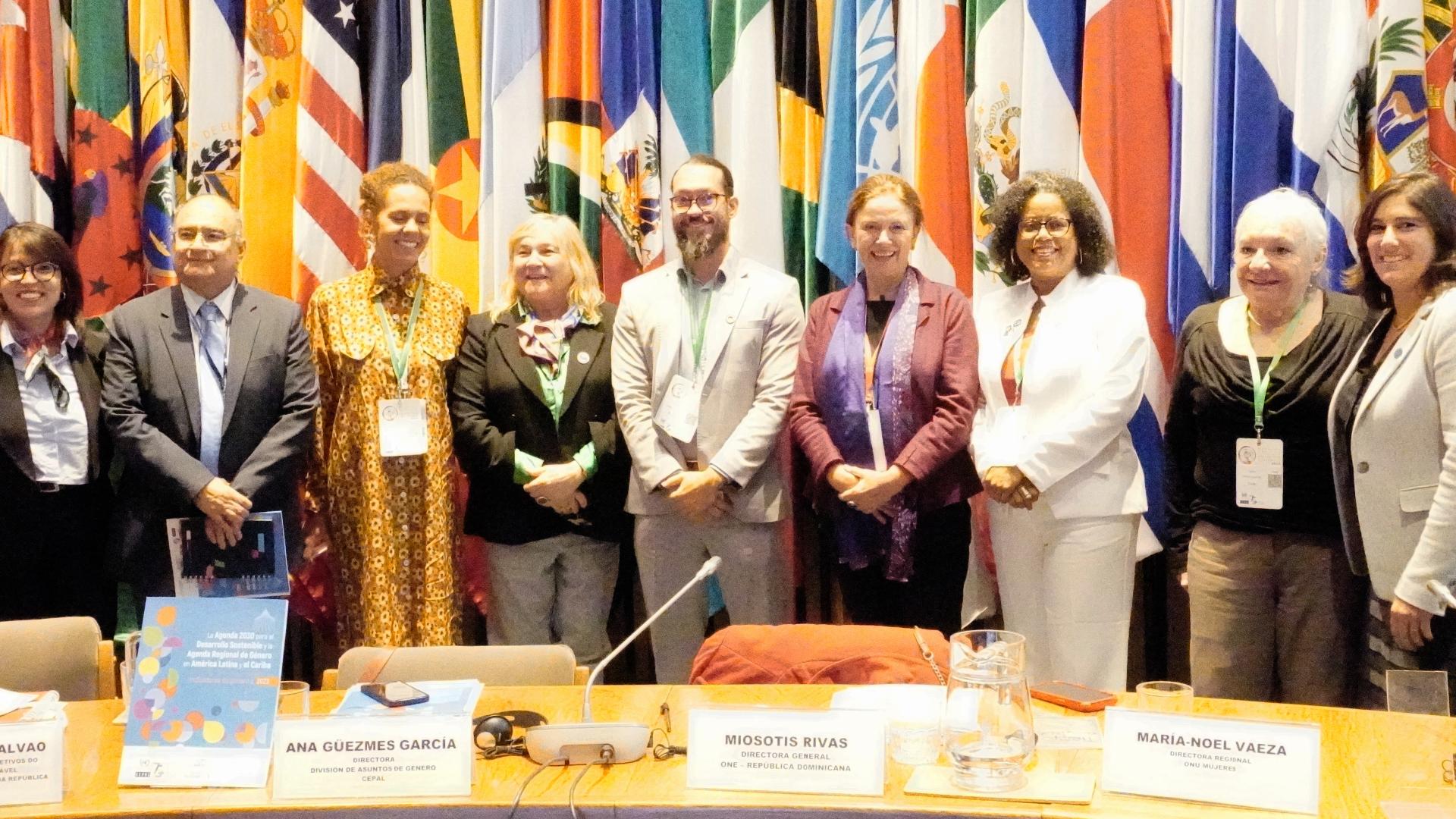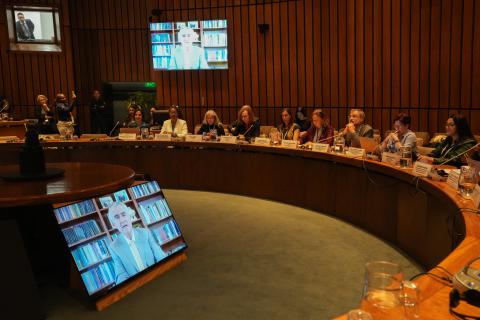Briefing note
In the countries of the Pacific Alliance, it is key to promote the economic participation of rural women in regional production chains to foster a transformative recovery with equality. This was one of the reflections shared by Nicole Bidegain Ponte, Social Affairs Officer of the ECLAC Division for Gender Affairs, during her moderation at the high-level panel “Policies and strategies for the economic empowerment of rural women in the countries of the Pacific Alliance” of the First Ministerial Meeting on Entrepreneurship and Economic Autonomy of Women of the Pacific Alliance. The meeting was held on August 5 of 2022 and was organized by the Technical Gender Group of the Pacific Alliance.
In addition, the Social Affairs Officer of the Division for Gender Affairs highlighted the role of the Ministries and mechanisms for the advancement of women to promote gender mainstreaming in trade policies and promote regional cooperation. She highlighted that the Pacific Alliance, through its Gender Working Group, is a pioneer in this regard.
This panel included the participation of Gheidy Gallo Santos, High Presidential Advisor for Gender Equality of Colombia; Diana Mirian Miloslavich Tupac, Minister for Women's Affairs and Vulnerable Populations of Peru; Luz Vidal Huiriqueo, Women and Gender Equity Undersecretary of Chile; and Luz María de la Mora, Undersecretary for Foreign Trade of the Mexican Ministry of Economy.
Nicole Bidegain Ponte also participated as a panelist in the panel “Why bet on Economic and Foreign Trade Policies with a gender approach?”, along with representatives of multilateral entities. In this framework, she made a presentation on “Challenges for the economic autonomy of women in foreign trade in countries of the Pacific Alliance” (available in Spanish).
According to the Social Affairs Officer of the Division for Gender Affairs, the pandemic deepened the structural challenges of gender inequality in Latin America and the Caribbean, which added new uncertainties and fluctuations in international trade derived from the war in Ukraine. Although the region is undergoing a recovery process, it is uneven. In this context, it is key to promote economic and foreign trade policies with a gender perspective to promote policy coherence and avoid the trade-off between gender equality, sustainability, and trade integration.
She highlighted that, according to ECLAC data, the proportion of women employed in the export sector in the countries of the Pacific Alliance is higher than the average for Latin America (16.7% compared to 12.7%). From a sectoral perspective, agriculture and agribusiness represent, respectively, 10.3% and 7.1% of employment associated with exports for women. However, the weight of these activities may be underestimated given the invisibility of women's work in family farming, which is often considered an extension of unpaid domestic work. In agriculture and agribusiness in the Pacific Alliance, for example, 27.6% of women workers are unpaid auxiliary family workers.
In addition, for rural women, producers, and entrepreneurs, the expansion of their enterprises beyond national borders becomes more difficult, since they tend to be concentrated in smaller companies and face gender gaps in access to productive resources, financing, technology, and markets. Also, rural women tend to have a higher unpaid workload compared to urban women and men.
Based on this panorama, Nicole Bidegain Ponte concluded her intervention by highlighting the importance of international commitments and the Regional Gender Agenda to move towards productive and trade diversification in sectors with more and better economic opportunities for women. In this sense, the Montevideo Strategy proposes to align trade policies with women's rights and the Santiago Commitment, develop programs for the generation of quality employment and enterprises led by women in international trade, carry out gender impact assessments of trade policies and cooperate to prevent harmful competition between countries and protect women's labor rights.
Finally, she made a call to participate in the XV Regional Conference on Women in Latin America and the Caribbean, which will take place from November 7 to 11, 2022, in Argentina, whose central theme will be "The care society as a horizon for a sustainable recovery with gender equality in Latin America and the Caribbean”. In this framework, issues related to women’s economic autonomy and participation in productive and trade sectors will be addressed.
More information:
See the presentation “Challenges for the economic autonomy of women in foreign trade in countries of the Pacific Alliance” (available in Spanish).
See the broadcast on Facebook (available in Spanish).



